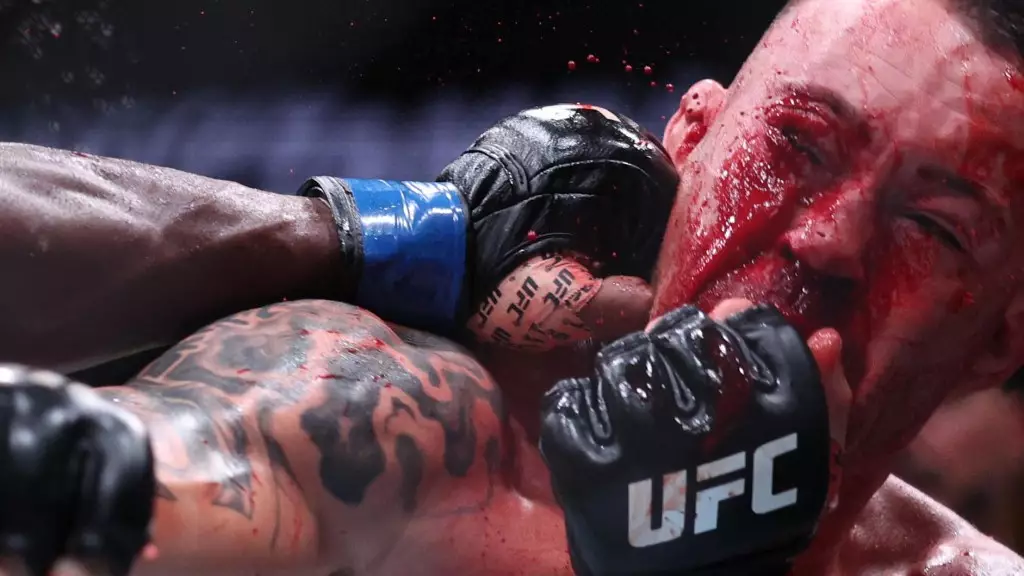In the world of mixed martial arts (MMA), the welterweight division is often a hotbed of talent and fierce competition. Recently, that landscape has shifted dramatically with the emergence of new fighters and the decline of former champions. This shift was dramatically illustrated at UFC on ESPN 63, where Colby Covington faced a humiliating defeat against Joaquin Buckley, leading to a third-round TKO due to a doctor stoppage. Belal Muhammad, the current welterweight champion, did not shy away from expressing his revelry at Covington’s misfortune.
Belal Muhammad relished every moment of Covington’s loss, as the pre-fight banter between the two fighters had escalated tensions to a boiling point. In his reflections, Muhammad noted the extent of Covington’s injuries, particularly a severe laceration on Covington’s right eyelid that ultimately led to the fight’s premature conclusion. Muhammad’s reaction wasn’t just one of schadenfreude; it also underscored what he perceives as a changing of the guard within the division. He criticized Covington’s performance, stating that it showcased a fighter who was outclassed in nearly every aspect of MMA.
Muhammad made a compelling argument regarding the façade around Covington’s reputation. Once celebrated as a dominant force in the welterweight division known for his relentless cardio and striking abilities, Covington now appears to be a diminished version of his former self. Muhammad articulated the perspective that Covington is no longer the fighter he once was, asserting that he is now vulnerable and unable to adapt to the rising talent within the sport. The champion pointed out that Covington’s style, which once struck fear into opponents, is now predictable and easily countered by newer fighters who have studied his limitations.
As the welterweight division evolves, Covington’s future hangs in a precarious balance. Muhammad predicted that Covington’s days among the elite fighters are numbered, expressing skepticism that Covington could compete effectively against even the top ten fighters in the division. Muhammad’s assertions were less about the satisfaction of seeing a rival fall and more about the transition within MMA, where boldness and adaptability are crucial for success. The once-prominent fighter is now left to reevaluate his position, facing the reality that he may need to reinvent himself if he wants to remain relevant in the welterweight hierarchy.
The events surrounding UFC on ESPN 63 may serve as a pivotal moment in the welterweight division, signaling not just a shift in power but also an invitation for an introspection within Covington. As new fighters emerge, and champions like Muhammad redefine what it means to be at the top, the echoes of Covington’s previous glory are fading. Muhammad’s candid critiques reflect a broader narrative of evolution within MMA, where the past is no longer a guarantee of future success. Covington’s journey from hero to underdog illustrates the unforgiving nature of competitive sports, where adaptation is the key to survival.

